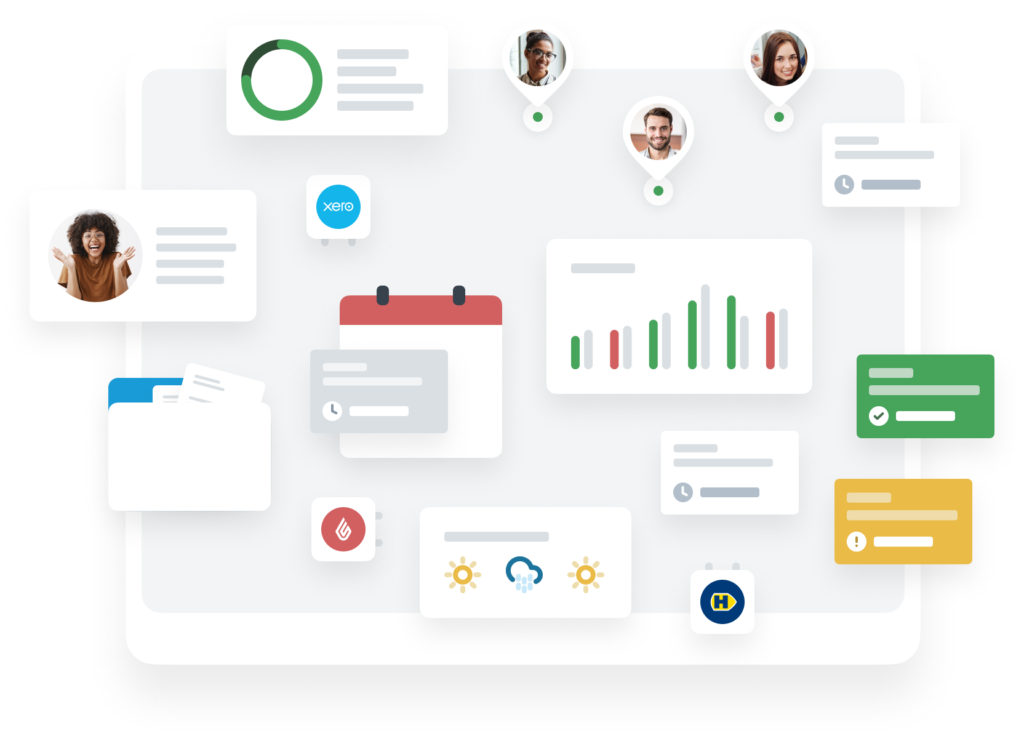
Article
5 min read
The role of artificial intelligence in employee scheduling and workforce management
Jun 15, 2023
Chapters
The role of artificial intelligence in employee scheduling and workforce management
Artificial Intelligence (AI) has significantly impacted the world of business in the last few years, transforming the way businesses in the hospitality, restaurant and care home industries, to name a few, operate, and its impact isn't anticipated to slow down any time soon..
One of the areas where AI is playing a significant role is employee scheduling and workforce management. From automating scheduling to improving efficiency and productivity, reducing labour costs and improving employee engagement, AI is beneficial in businesses of all sizes.
In this article, we'll explore the role of AI in strategic workforce planning and management, and how it's improving efficiency and productivity.
What is employee scheduling and workforce management?
Employee scheduling and workforce management are key aspects of running a business, but they can be a daunting task for managers and business owners.
Employee scheduling
This involves creating and managing work schedules while ensuring the right employees are working at the right time, taking into consideration their availability, skill set and preferences.
Workforce management
Workforce management, on the other hand, involves the broader management of employees and their activities within a business. This includes everything from monitoring and tracking real time attendance, handling payroll, compensation and benefits, as well as communications.
In the past, all aspects of workforce management were done manually, with a pen and paper; it was time-consuming and prone to errors.
How AI is revolutionising workforce management
AI offers a range of benefits for businesses in multiple sectors, including the hospitality, care home, restaurant and hotel industries. By using AI-based strategic management solutions, businesses can streamline their workforce management processes and make better-informed decisions about their employees, resulting in increased efficiency, productivity and cost savings.
For example:
1. Automated shift scheduling
One of the ways AI is transforming workforce management is through automated shift scheduling. AI-powered scheduling software can quickly generate schedules based on employee availability, skill sets, preferences as well as other key factors such as qualifications.
This not only saves managers time, but also means schedules are fair and balanced, less prone to errors and that employees are assigned tasks that align with their particular strengths and work preferences.
2. Forecast and demand planning
AI can help with forecasting, enabling businesses to better predict demand and adjust their staffing levels accordingly. AI analyses historical data and uses predictive analytics to identify trends and patterns, allowing managers to make informed decisions about staffing and scheduling.
This can result in cost savings because businesses aren't then overstaffed during slow periods, while still having enough staff on hand during busy periods to meet demand and deliver outstanding customer service.
3. Time tracking and leave management
AI is being used to optimise time and attendance management, reducing the amount of time and money spent on managing employee absences and leave requests.
With real-time tracking and monitoring, businesses can easily keep track of employee attendance, hours worked and overtime, preventing time theft, ensuring employees are being compensated fairly and accurately for their work, while still meeting business needs.
By automating these processes, managers are safe in the knowledge they have adequate staffing levels at all times, while also reducing the risk of human error and ensuring compliance with labour laws and local regulations.
4. Employee engagement
AI can improve employee engagement by giving employees more control over their work schedules. This means employees have more flexibility and control over their schedules; they can request time off, swap shifts and even set their availability, leading to improved job satisfaction and increased productivity.
5. Reduced labour costs
In industries such as hospitality and care homes where labour costs are often one of the biggest expenses, AI-powered workforce management tools can offer significant cost saving benefits.
By analysing employee availability, skill set, and workload data, AI can create schedules that are optimised for efficiency, while reducing labour costs, and ensuring that staffing levels are adequate to meet customer demand.
For example, in a hotel, AI can predict fluctuations in demand based on factors such as seasonal trends and events, and adjust staffing levels accordingly. Similarly, in a restaurant or care home, AI can optimise schedules ensuring employees are assigned tasks that are better suited to their individual strengths and preferences. This improves employee satisfaction, reduces turnover rates and ultimately leads to better customer service and profitability.
6. Improved compliance
Whatever industry you're in, compliance with labour laws and regulations is of the utmost importance. Failure to comply can result in costly fines and legal action, as well as irreparably damage your business's reputation. AI can help you stay compliant.
By analysing data on employee schedules and availability, AI will take into consideration factors such as minimum rest periods and maximum working hours. For example, in the hotel industry, where employees may work long hours and irregular shifts, AI can help make sure employees aren't overworked and are receiving the appropriate amount of rest between shifts, preventing burnout so that employees are capable of providing high-quality service to guests.
Challenges and risks associated with using AI for scheduling and workforce management
While AI solutions bring numerous benefits to the table, they also have some modern workforce management challenges and risks to take into consideration.
By being aware of these challenges and taking steps to address them, SMBs can reap the benefits of AI while mitigating the risks. For example:
Implementation and integration challenges
One of the significant workforce management challenges associated with using AI in workforce management, is the need to integrate it into existing systems seamlessly. This can be a complicated process that requires significant time and resources, especially for SMBs that may not have a large IT department.
Data privacy and security concerns
Another concern is the security and privacy of employee data. For AI to create accurate employee schedules, it relies on collecting and processing employee data, which can make them vulnerable to security breaches and data privacy concerns. Businesses need to make sure they have robust security measures in place to protect sensitive employee information.
Bias and discrimination
AI-based solutions rely on machine learning algorithms that learn from historical data to make decisions. However, if this data comes from traditional resource management methods, this can introduce bias into the system, which can result in discrimination against certain employees.
For example, if the system has learned that employees with certain characteristics are more likely to call in sick, it may penalise them, leading to unfair treatment.
Over-reliance on technology
While an AI-based scheduling and workforce management solution can help streamline operations and assist with the scheduling process, there is a risk of over-reliance on technology.
Businesses need to have the necessary human oversight to ensure the system is making fair and ethical decisions, striking a balance between the benefits of AI-based solutions and the need for human input.
Future of AI in employee scheduling and workforce management
As AI technology continues to evolve, so does its potential impact on employee scheduling and workforce management, with several advancements on the horizon.
Advancements in AI technology
AI algorithms can analyse data and make predictions about future workforce needs, enabling more efficient scheduling and staffing decisions.
Planday for example, utilises AI in its scheduling feature, which uses historical data to forecast staffing needs and create optimised schedules, avoiding instances of over- or under-staffing, reducing labour costs and increasing efficiency.
Its AI-powered time and attendance Punch Clock feature automatically detects and corrects errors in time tracking, helping businesses ensure accurate pay for their employees, while reducing the time and effort required for manual review and correction.
Increased adoption of AI-based solutions
The hospitality, care home, restaurant and hotel industries are no strangers to technology adoption. In fact, these industries were early adopters of many innovations in the past, e.g. online booking systems, self-service kiosks and mobile payment solutions. So it should come as no surprise that these industries are fast embracing AI-based solutions for employee scheduling and workforce management.
Final thoughts
Despite these concerns, the future of AI in employee scheduling and workforce management looks promising. As AI technology continues to evolve, businesses in the hospitality, care home, restaurant and hotel industries are poised to reap the benefits of improved efficiency, reduced labour costs and better compliance with labour laws and regulations.
To find out more about how Planday can help you achieve more by uncomplicating your workforce management with AI, book a demo or request a free 30 day trial today.

Employee Scheduling Guide
Learn how to create a work schedule with our complete employee scheduling guide

Free Employee Shift Schedule in Excel
Scheduling shifts is a vital part of any shift-based business. Going old school with pen and paper can cause headaches. Make the perfect rota with our free Excel template.

Scheduling Student Employees at College Campuses
Being empathetic to student needs while properly scheduling your staff is a tricky balancing act. Fortunately, we have some tips and solutions

